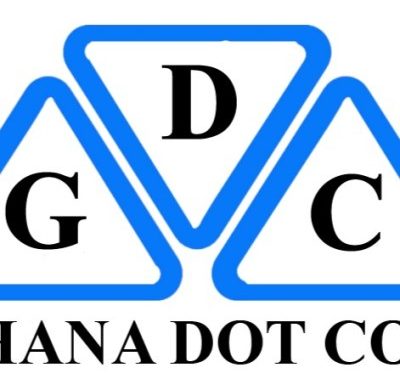Unlocking the Power: Exploring the Strategic Benefits of Blockchain Technology

Unlocking the Power: Exploring the Strategic Benefits of Blockchain Technology
Blockchain technology has gained significant attention in recent years due to its potential to revolutionize various industries. Originally developed as the underlying technology for cryptocurrencies like Bitcoin, blockchain has evolved into a versatile tool with numerous strategic benefits. In this blog post, we will delve into the strategic advantages offered by blockchain technology and explore how it can transform businesses across different sectors.
-
Enhanced Security and Data Integrity:
One of the primary strengths of blockchain technology lies in its ability to provide enhanced security and data integrity. By utilizing cryptographic algorithms and decentralized consensus mechanisms, blockchain ensures that data stored within its network remains tamper-proof and immutable. This makes it an ideal solution for industries that handle sensitive information such as financial institutions, healthcare providers, and supply chain management systems.
-
Increased Transparency and Trust:
Blockchain’s transparent nature enables participants to have access to a shared, immutable ledger. This transparency fosters trust among stakeholders as it eliminates the need for intermediaries and provides real-time visibility into transactions. With blockchain, businesses can establish a trusted environment, reducing fraud, improving accountability, and enhancing customer trust. This benefit has immense potential in sectors like auditing, voting systems, and supply chain traceability.
-
Streamlined and Efficient Processes:
Blockchain technology has the potential to streamline and automate complex processes, leading to increased efficiency and cost savings. Smart contracts, self-executing contracts with predefined conditions, enable automatic verification and execution of agreements. This eliminates the need for intermediaries and minimizes human errors, resulting in faster transaction settlement and reduced operational costs. Industries such as real estate, logistics, and insurance can greatly benefit from these streamlined processes.
-
Decentralization and Disintermediation:
Blockchain’s decentralized nature eliminates the reliance on a central authority or intermediaries. This disintermediation reduces the associated costs and complexities involved in traditional centralized systems. By cutting out intermediaries, blockchain allows for direct peer-to-peer interactions, fostering efficiency, speed, and cost-effectiveness. This aspect of blockchain technology has the potential to disrupt industries like banking, remittances, and peer-to-peer marketplaces.
-
Improved Supply Chain Management:
Blockchain offers transformative solutions for supply chain management by providing end-to-end visibility, traceability, and accountability. Through blockchain, stakeholders can track and authenticate every step of a product’s journey, ensuring product quality, preventing counterfeiting, and optimizing inventory management. This level of transparency is especially valuable for industries like retail, pharmaceuticals, and food production.
READ: Welcome To Zuzalu, The Pop-Up City Inhabited By Billionaires Who Don’t Want To Grow Old
Blockchain technology holds immense potential to revolutionize various industries by unlocking strategic benefits such as enhanced security, increased transparency, streamlined processes, decentralization, and improved supply chain management. As organizations recognize the advantages offered by blockchain, they are increasingly exploring its integration into their operations. Embracing this technology can enable businesses to gain a competitive edge, drive innovation, and create new opportunities in the evolving digital landscape. It is crucial for forward-thinking companies to understand the power of blockchain and harness its capabilities to stay ahead in today’s dynamic business environment.
Send Stories | Social Media | Disclaimer
Send Stories and Articles for publication to [email protected]
We Are Active On Social Media
WhatsApp Channel: JOIN HERE
2024 BECE and WASSCE Channel - JOIN HERE
Facebook: JOIN HERE
Telegram: JOIN HERE
Twitter: FOLLOW US HERE
Instagram: FOLLOW US HERE
Disclaimer:
The information contained in this post on Ghana Education News is for general information purposes only. While we endeavour to keep the information up to date and correct, we make no representations or warranties of any kind, express or implied, about the completeness, accuracy, reliability, suitability or availability with respect to the website or the information, products, services, or related graphics contained on the post for any purpose.



 10 Industries That Have Been Revamped by AI
10 Industries That Have Been Revamped by AI  Meet Prof. Nii Quaynor, The Father of Africa Internet and 3 other men who brought the internet to Ghana 29 years ago
Meet Prof. Nii Quaynor, The Father of Africa Internet and 3 other men who brought the internet to Ghana 29 years ago  How internet service in Ghana was 25-29 years ago: You are lucky with what you have now
How internet service in Ghana was 25-29 years ago: You are lucky with what you have now  How to Apply to Any University in Ghana with D7 in WASSCE
How to Apply to Any University in Ghana with D7 in WASSCE  9 Challenges Shattering the Foundation of Ghana’s Education System
9 Challenges Shattering the Foundation of Ghana’s Education System  Ministry of Education Postpones Reopening Date of Basic Schools By One Week
Ministry of Education Postpones Reopening Date of Basic Schools By One Week  Old students build health centre for Awudome SHS
Old students build health centre for Awudome SHS